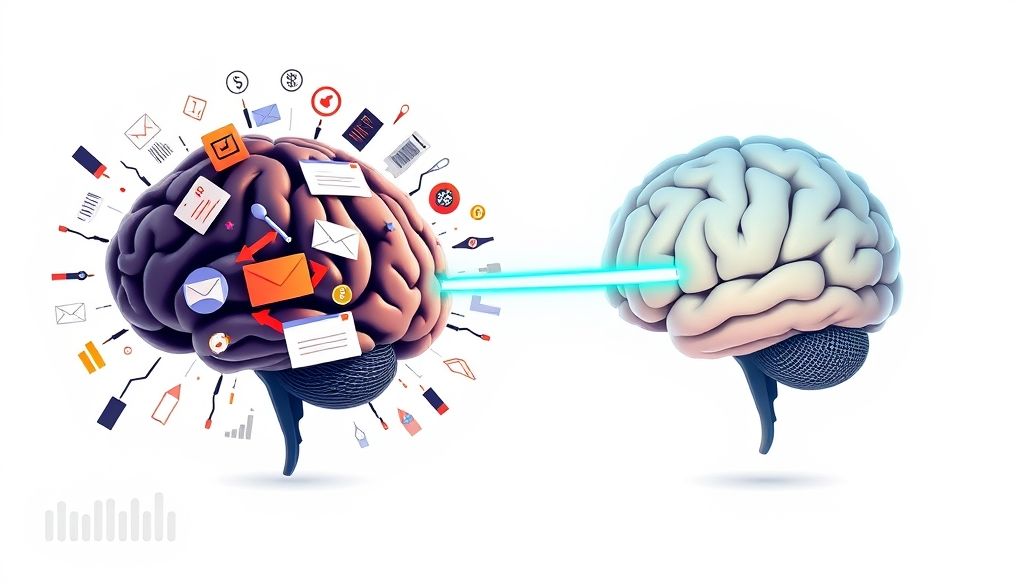Introduction: A Sound Mind in a Sound Body
The connection between physical and mental health has long been recognized, but what is the mechanism that links them? And how can we leverage this relationship to improve our lives? In this article, we will explore the complex relationship between physical exercise and mental fitness, and offer practical tips to enhance both.
Chapter 1: The Impact of Physical Exercise on the Brain
1.1 Blood Flow and Oxygen
Physical exercise increases blood flow and oxygen to the brain, enhancing its functions and improving its performance. This increased flow helps nourish brain cells and remove toxins, leading to improved memory, focus, and learning ability.
1.2 Neurotransmitter Release
During exercise, the brain releases chemicals such as dopamine, serotonin, and endorphins, which act as natural mood enhancers and reduce stress and anxiety. These neurotransmitters play a crucial role in improving mood and promoting feelings of happiness and well-being.
1.3 Stimulation of Neuron Growth
Research suggests that physical exercise stimulates the growth of new neurons in the hippocampus region of the brain, which is responsible for memory and learning. This new nerve growth can help improve long-term memory and reduce the risk of neurodegenerative diseases such as Alzheimer's.
Chapter 2: Benefits of Physical Exercise for Mental Fitness
2.1 Improving Memory and Focus
Studies show that regular exercise can improve short- and long-term memory, as well as enhance the ability to focus and pay attention. This is especially beneficial for students and professionals who need to perform tasks that require high concentration.
2.2 Reducing Stress and Anxiety
Physical exercise is an effective way to relieve stress and anxiety, as it helps reduce levels of cortisol (the stress hormone) in the body. It also promotes the release of endorphins, which act as natural pain relievers and mood enhancers.
2.3 Improving Sleep
Regular exercise can help improve sleep quality, leading to improved cognitive performance and memory. However, strenuous exercise should be avoided immediately before bedtime, as it can lead to difficulty sleeping.
Chapter 3: Types of Physical Exercise Best for Mental Fitness
3.1 Aerobic Exercises
Aerobic exercises include walking, running, swimming, and cycling, and are particularly beneficial for improving cardiovascular health, thereby promoting blood flow to the brain. It is recommended to engage in aerobic exercise for at least 30 minutes most days of the week.
3.2 Strength Training
Strength training helps build muscle and increase physical strength, but it is also beneficial for brain health. Strength training can help improve memory, focus, and reduce the risk of neurodegenerative diseases.
3.3 Yoga and Meditation
Yoga and meditation combine physical exercises with deep breathing and mental focus, which helps reduce stress and anxiety and improve mood. Yoga and meditation can also help improve memory, focus, and learning ability.
Chapter 4: How to Start an Exercise Program to Boost Mental Fitness
4.1 Consult Your Doctor
Before starting any new exercise program, it is important to consult your doctor, especially if you have any health problems.
4.2 Start Slowly
Start with light exercises and gradually increase the intensity and duration of the exercises. Don't try to do too much too soon, as this can lead to injury.
4.3 Make it a Habit
Try to incorporate exercise into your daily routine. You can walk for 30 minutes during your lunch break or practice yoga in the morning before going to work.
4.4 Have Fun
Choose activities that you enjoy, so you are more likely to stick with them in the long term. You can try different types of exercises until you find what suits you.
Chapter 5: Nutrition and Its Role in Promoting Mental and Physical Fitness
5.1 Brain-Boosting Foods
Nutrition plays a crucial role in brain health. Brain-boosting foods include fatty fish (rich in omega-3 acids), green leafy vegetables, berries, nuts, and seeds.
5.2 Avoid Processed Foods
Avoid processed foods, added sugars, and saturated fats, as they can negatively affect brain health and increase the risk of chronic diseases.
5.3 Drink Enough Water
Stay hydrated by drinking enough water throughout the day. Dehydration can lead to fatigue, headaches, and poor concentration.
Chapter 6: Sleep and Its Importance for Mental and Physical Fitness
6.1 Getting Enough Sleep
Adequate sleep is essential for brain and body health. It is recommended to get 7-8 hours of sleep each night.
6.2 Improving Sleep Quality
To improve sleep quality, maintain a regular sleep schedule, avoid caffeine and alcohol before bed, and create a comfortable sleep environment.
Chapter 7: Real-Life Success Stories
There are many inspiring stories of people who have been able to improve their mental and physical fitness through regular exercise, healthy eating, and getting enough sleep. These stories prove that anyone can achieve a positive change in their lives by committing to healthy habits.
Chapter 8: Additional Tips to Boost Mental Fitness
- Engage in activities that stimulate the brain, such as reading, solving puzzles, and learning new skills.
- Connect with others and participate in social activities.
- Set aside time for relaxation and meditation.
- Be positive and optimistic.
In conclusion: The relationship between physical exercise and mental fitness is strong and scientifically proven. By incorporating exercise into your daily routine, you can improve brain and body health, and enhance memory, focus, and mood. Remember to start slowly and enjoy the process, and you will soon notice the many benefits that come from exercising.




